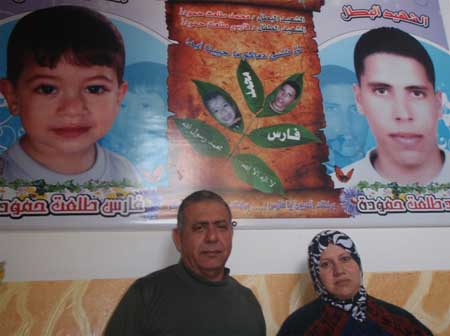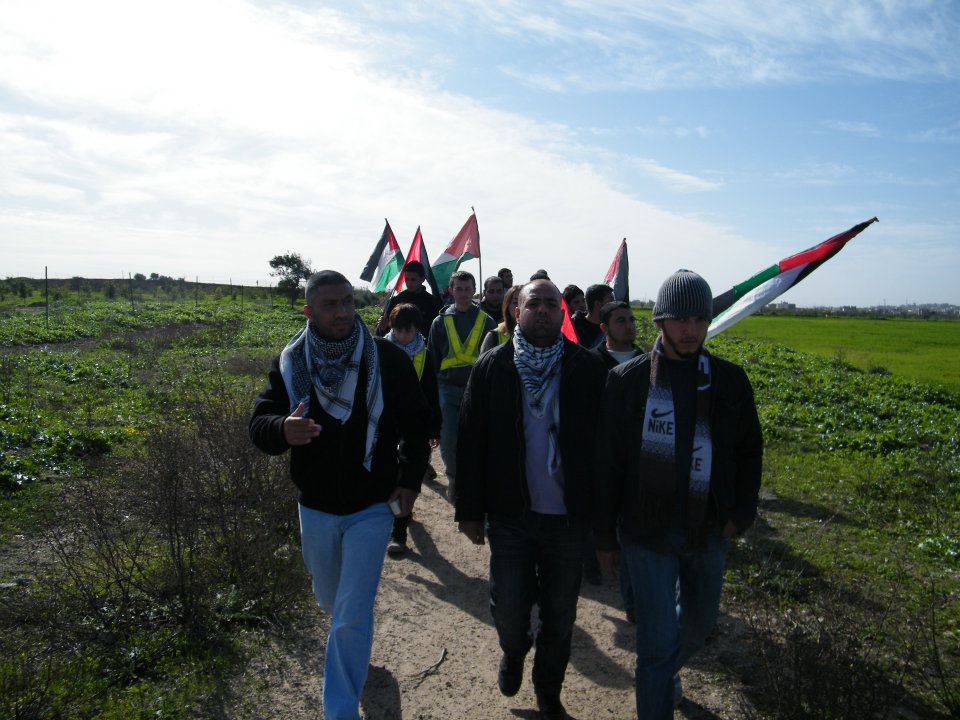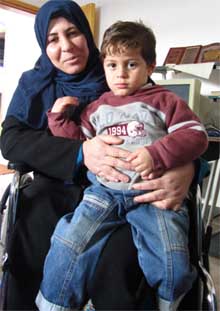Tag: Gaza
-
11 January 2009: The Hamouda family
11 January 2012 | Palestinian Centre for Human Rights “I cannot even pick up another child in my arms, I had a new grandchild, he is six months old, but I have yet to take him in my arms, I feel that place belongs to Fares” In the early morning of 11 January 2009, the…
-
Resistance continues, demonstration in the No Go Zone
by Nathan Stuckey 11 January 2012 | International Solidarity Movement, Gaza Every Tuesday we gather in front of the Beit Hanoun Agricultural College, members of the Beit Hanoun Local Initiative, the International Solidarity Movement and other activists from all over Gaza. We gather, and we march into the no go zone. Sometimes we are shot…
-
10 January 2009: Wafa al-Radea
10 January 2012 | Palestinian Centre for Human Rights “When I left my children I was walking and my children had not seen my wounds. The most difficult moment was when I came back with only 1 leg and many injuries. I was a different Wafa. When I came back I was supposed to happy…



